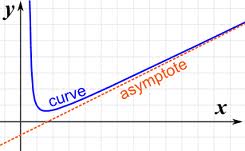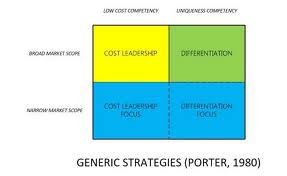What if... a single machine could provide all of the goods and services that a country's economy currently produces? Would human productivity (GDP per labor hour) be infinity ? Who should own the machine? Google? The government? Goldman Sachs? Would the end state look the same if we built such a machine over 100, 50, 10 or 2 years?
This is not rambling, this is "asymptotic thinking" and I believe it is a pre-requisite to good strategic thinking. In calculus it is 
This thinking is important because we approach limits incrementally from a DIRECTION and in strategy, as well as calculus, the direction matters. More specifically there can be discontinuities along the path, much like crossing a chasm in product marketing.



